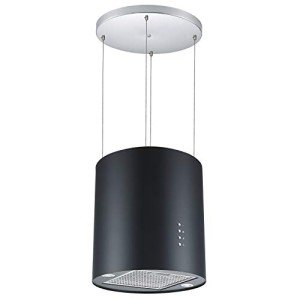20 Quotes That Will Help You Understand Island Hood
페이지 정보

본문

Island Hood: A Comprehensive Guide to Sheltering from the Storms
island ventilation hoods hoods, often described as "island caps" or "island gazebos," are flexible and practical structures frequently placed in residential gardens, public parks, or beachside areas. They serve the double purpose of providing shade throughout sunny days and shelter during unexpected weather. This article checks out the features, benefits, styles, and considerations for structure or buying an island hood, as well as common FAQs surrounding this essential garden device.

Understanding Island Hoods
What is an Island Hood?
An island hood is a freestanding structure that typically makes up a roofed canopy supported by posts or beams. Developed as open-sided shelters, these hoods offer a welcoming space for relaxation, dining, or social gatherings, permitting people to delight in nature while being protected from the aspects.
Functions of Island Hoods
Island extractor fan Kitchen hoods usually include a range of features, consisting of:
- Open style: Allowing for airflow and unblocked views.
- Long lasting products: Constructed from weather-resistant materials such as wood, metal, or composite products.
- Personalized options: Various designs (modern, standard, tropical) and completes to match the aesthetic of the surrounding environment.
- Optional additions: Features such as integrated seating, lighting, or heating can enhance performance.
Advantages of Having an Island Hood
Embracing the appeal of outside living, island hoods feature several advantages:
- Protection from aspects: Shield users from sun, rain, and wind.
- Enhanced outside experience: Provide a comfortable and welcoming area for outside entertainment.
- Increased residential or commercial property value: A properly designed island hood can improve the appeal and worth of a residential or commercial property.
- Flexibility: Suitable for various uses, from family gatherings to small wedding events or peaceful retreats.
- Health advantages: Encourages a connection with nature, promoting a much healthier lifestyle.
Designing an Island Hood
When it pertains to developing or acquiring an kitchen island cooker hood hood, a number of elements enter into play. Below are crucial factors to consider.
1. Function and Use
Determine the primary function of your island hood. Will it be a household event area, a peaceful reading nook, or an area for amusing buddies? Understanding its designated use will assist guide design decisions.
2. Location
Choose an appropriate location in your lawn or property. Ideally, it must be:
- Near existing amenities: Like a kitchen island cooker hood or dining area.
- Optimum sunlight direct exposure: Consider putting it where it can supply shade at peak sun times.
- Landscaped: Integrate with existing flora for a cohesive appearance.
3. Size
Select a suitable size based on the variety of individuals you expect to accommodate. Prepare an easy layout and make sure there suffices area for furnishings, movement, and any extra functions you may desire.
4. Products
Select materials that will stand up to local weather. Choices include:
| Material | Pros | Cons |
|---|---|---|
| Wood | Natural appearance, adjustable | Needs maintenance, susceptible to rot |
| Metal | Durable, modern-day aesthetic | Can be hot in sunlight, may rust |
| Composite | Low maintenance, weather-resistant | Can do not have the beauty of natural materials |
5. Style
Choose a design style that matches your residential or commercial property's architecture. Styles can consist of:
- Traditional
- Contemporary
- Rustic
- Coastal
Building Your Own Island Hood
extractor fans for kitchen islands those inclined towards DIY tasks, building an island hood can be attainable with the ideal products and tools. Here's a basic step-by-step process:
- Gather Materials: Wood, metal poles, nails/screws, island hood extractor roof product (such as metal sheeting or roof tiles).
- Plan Your Design: Draw up a blueprint, ensuring to consist of the specific measurements and structural assistances as needed.
- Lay the Foundation: Use concrete to create a steady base for the posts or supports.
- Construct the Frame: Build the structural structure-- ensuring it is level and secure.
- Add the Roof: Attach the chosen roofing material, guaranteeing it is water resistant and firmly fastened.
- Finishing Touches: Consider including paint or stain, and any additional features such as seating.
Frequently Asked Questions About Island Hoods
Q1: How much does an island hood expense?
A: Costs can vary extensively based on materials, size, and style complexity. DIY alternatives might begin at a few hundred dollars, while professionally developed hoods can range from ₤ 2,000 to ₤ 10,000 or more.
Q2: How do I maintain an island hood?
A: Maintenance depends upon the products utilized. Wood hoods require routine painting or sealing, metal may require rust avoidance, and composite normally just needs cleaning.
Q3: Can I use an over island extractor fan hood year-round?
A: Yes, with the best style and products, lots of island hoods can be enjoyed throughout various seasons. Adding features like heating or windbreaks can improve comfort.
Q4: Do I require a license to develop an island hood?
A: Regulations vary by area. It's a good idea to check regional zoning laws and structure codes to see if a permit is needed for building.
Island hoods are more than mere outside structures; they are gateways to enhancing outside living experiences, using security from the elements while creating unique areas for relaxation and social interaction. Whether property owners decide to build their own or seek professional aid, the advantages of having an island hood are clear. The thoughtful consideration of design, materials, and area can make sure that these lovely shelters serve both functional and aesthetic functions for several years to come.
By incorporating an island hood into outdoor living areas, individuals not just raise their home but also accept the delights of nature, fostering connections with household and buddies while enjoying their surroundings, rain or shine.
- 이전글Psychiatry Clinic Near Me Isn't As Tough As You Think 25.05.20
- 다음글10 Life Lessons We Can Learn From Who Diagnoses ADHD 25.05.20
댓글목록
등록된 댓글이 없습니다.













